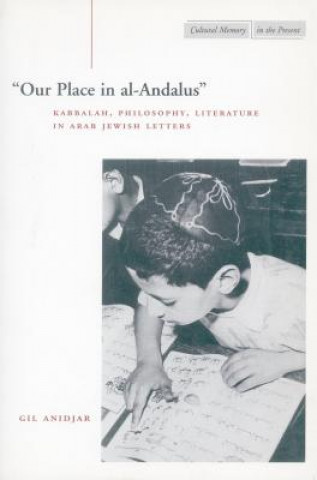
Livrare
Consilier de cumpărături





Nu se pretează? Nu contează! La noi puteți returna bunurile în 30 de zile
 Voucher cadou
orice valoare
Voucher cadou
orice valoare
Cu un voucher cadou nu veți da greș. În schimbul voucherului, destinatarul își poate alege orice din oferta noastră.
'Our Place in al-Andalus'
 engleză
engleză
 88 b
88 b
30 de zile pentru retur bunuri
Ar putea de asemenea, să te intereseze


The year 1492 is only the last in a series of "ends" that inform the representation of mediaeval Spain in modern Jewish historical and literary discourses. These ends simultaneously mirror the traumas of history and shed light on the discursive process by which hermetic boundaries are set between periods, communities, and texts. This study addresses the representation of the 12th and 13th centuries as the end of al-Andalus (Islamic Spain). Here, the end works to locate and separate Muslim from Christian Spain, Jews from Arabs, philosophy from Kabbalah, Kabbalah from literature, and texts from contexts. The volume offers a reading of texts that emerge from its Andalusi, Jewish and Arabic cultural sphere: Maimonides' "Guide of the Perplexed"; the major text of Kabbalah, the "Zohar"; and the Arabic rhymed prose narrative of Ibn al-Astarkuwi. The author argues that these texts are written in a language that disrupts the possibility of locating it in a pre-existing cultural situation, a recognizable literary tradition, or a particular genre. At stake are issues - texts and contexts - that have gained particular urgency in the writings of such recent thinkers as Walter Benjamin, Jacques Derrida, Giorgio Agamben, Jean-Luc Nancy and Avital Ronell. The book reads the place and taking place of language, interrogating the notion of disappearing contexts and the view that language is derivative of its true place, the context that, having ended, is mourned as silent and lost.
Informații despre carte
 engleză
engleză




 Cum să cumpăr
Cum să cumpăr




















